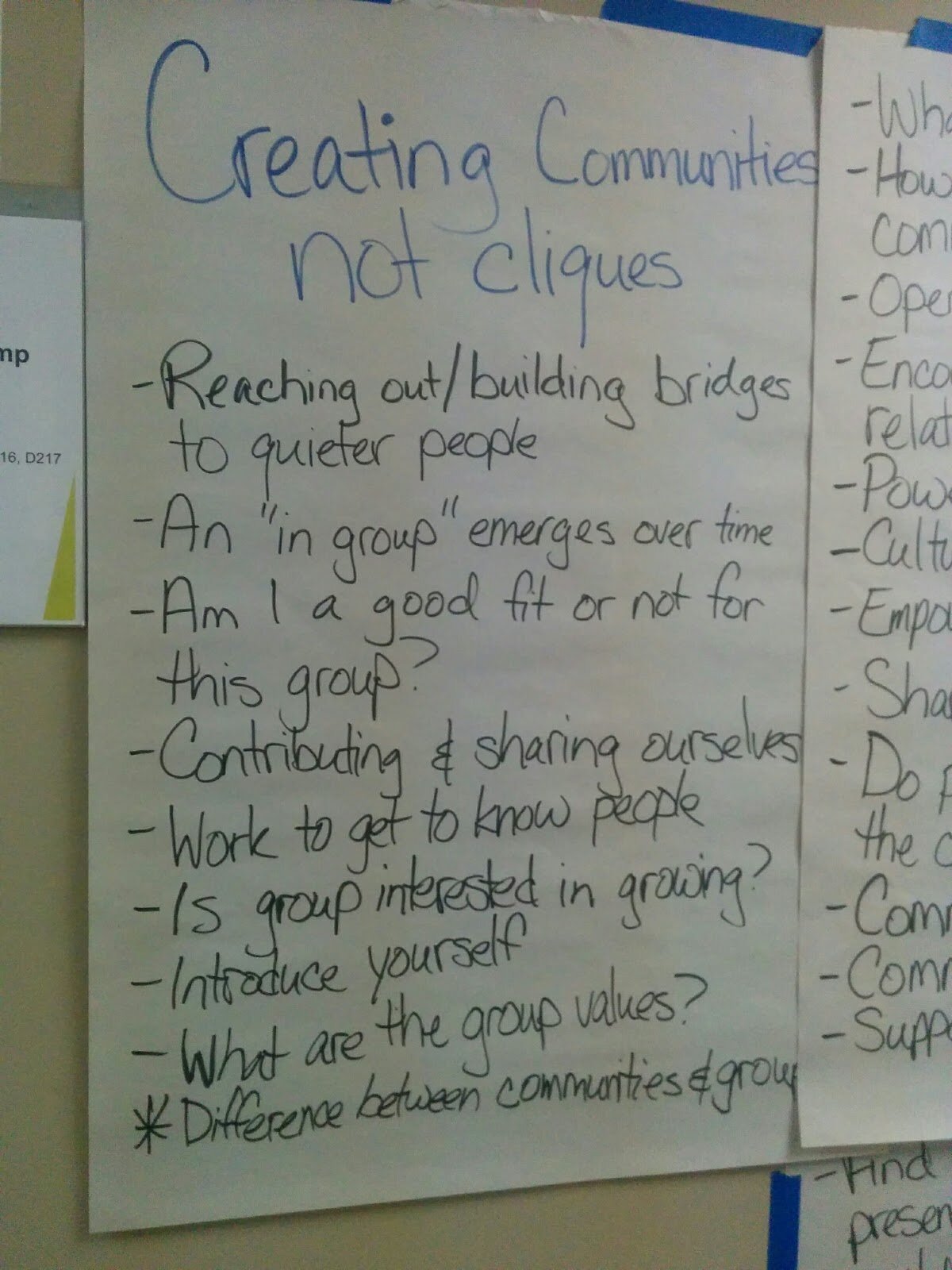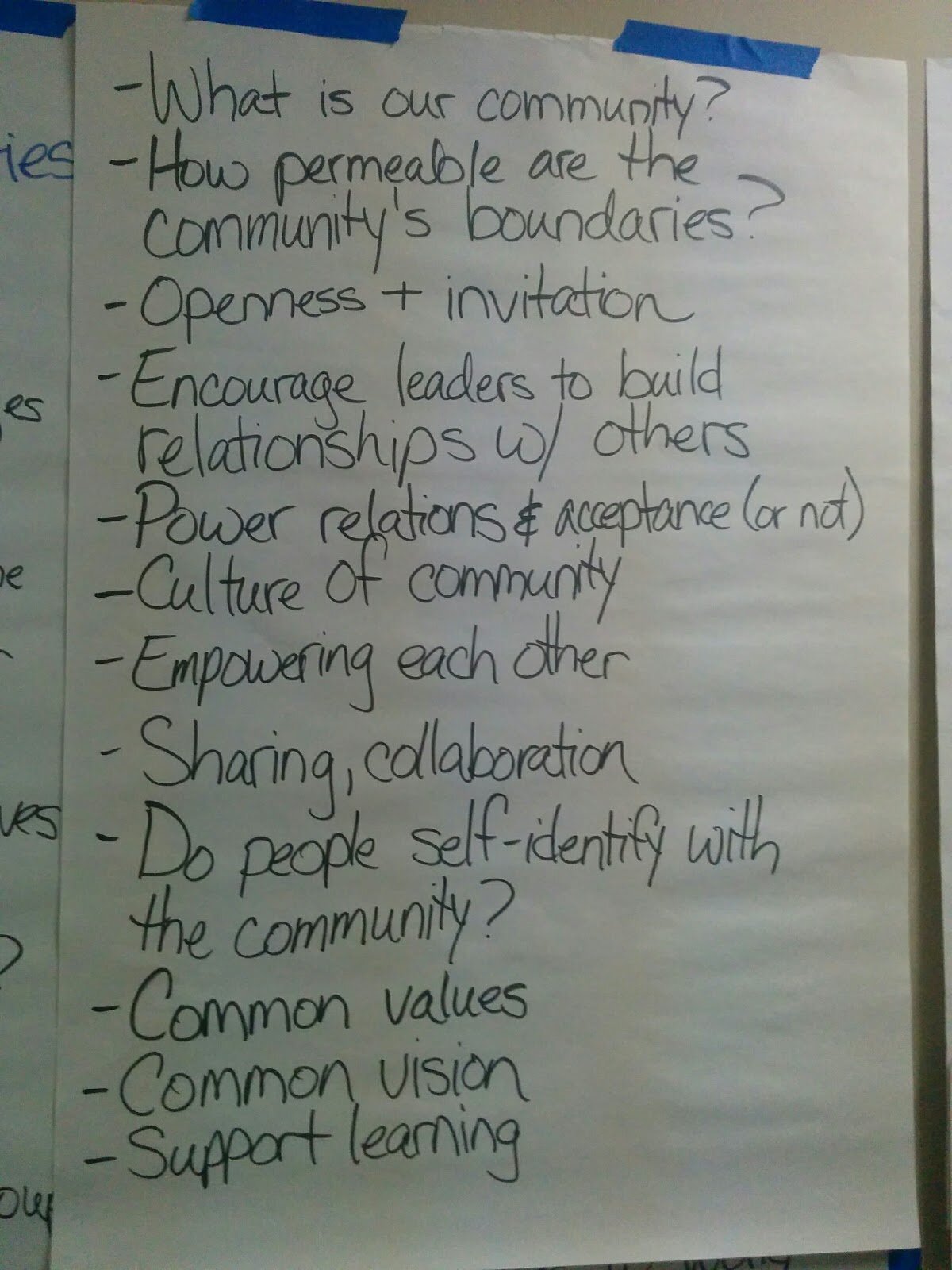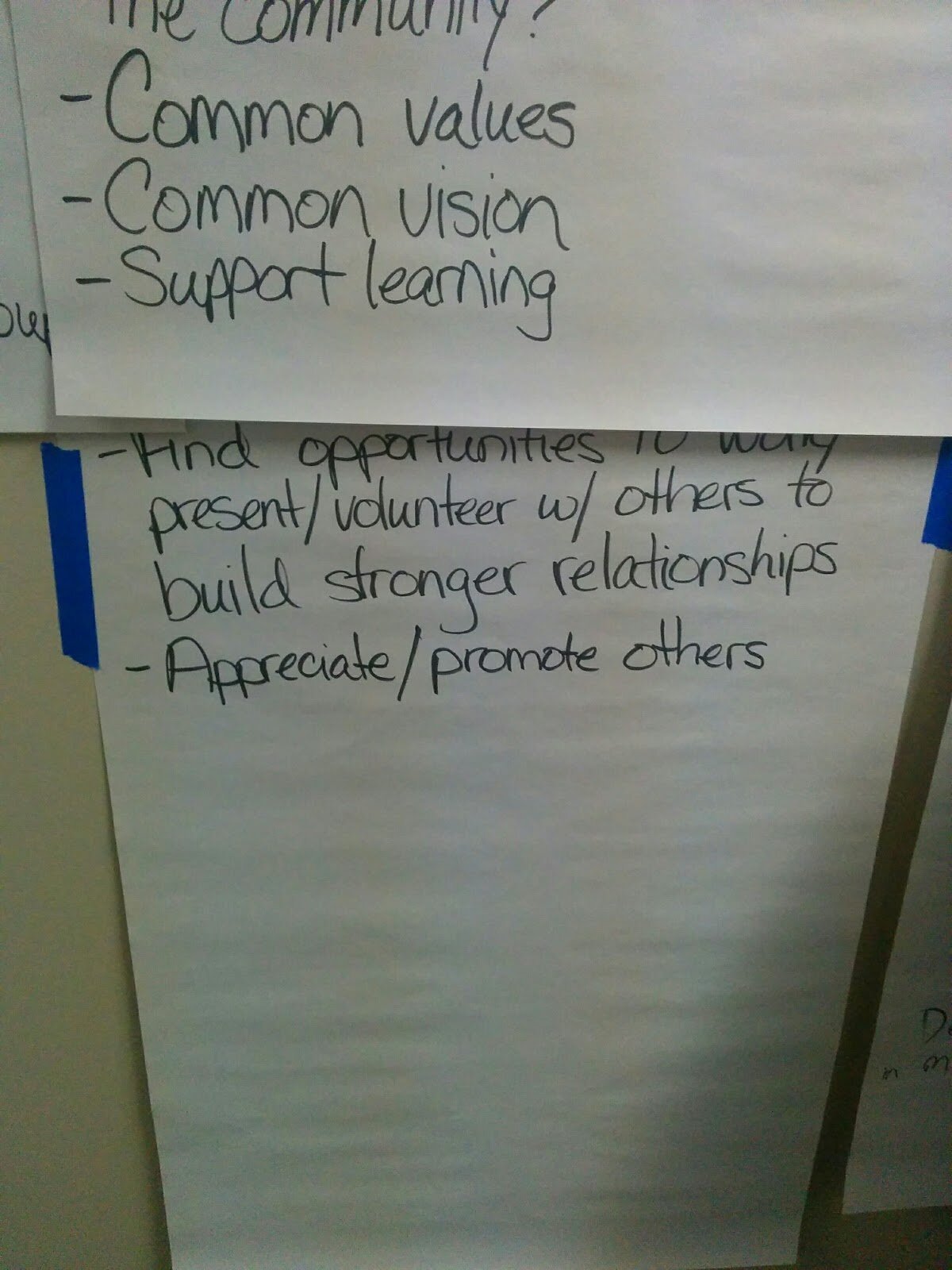Creating Communities, not Cliques
Attending a meetup for the first time brings back memories of being the new kid in school. I find my way to the correct building/floor/room, try to blend in as I orient myself, get myself some food or a drink, and then the big awkward moment: where do I sit? One meetup I attended was especially challenging because people were standing and mingling in one space, and chairs were setup lecture-style in another for the night’s presentation—networking with strangers while juggling food is not one of my talents!
When I decide to attend a user group for the first time, it’s a step outside of my comfort zone—could be a big step or a small one, depending on the group. I remember talking to a friend after we’d attended a meetup, and he considered disengaging from the group because he was put off by another attendee who would hijack presentations to show off how much he knows.
Meetup and networking groups are started to create community, and it’s a big goal. The risk is that our efforts to create communities result in forming cliques that impede that goal. People decide to become regular attendees of a group (or not) based on their experiences at events. No one wants to spend their time feeling out of place or like the uncool kid.
I explored this topic with folks at Agile Coach Camp Canada a few years ago (an amazing community, by the way!). All of us are active members of the agile community, and many of us have been volunteers or organizers for groups and conferences.
Below are some notes from our discussion on creating communities and not cliques:
I’ve learned to appreciate the folks who are great at welcoming folks and putting them at ease in these situations. It’s an art form. DFW Scrum and Dallas Agile Leadership Network gave me a sense of belonging in the agile community when I first started that helped me to grow. I’ve been fortunate to become friends with a number of folks I first met through those user group events. Part of the success of a community group is seeing relationships flourish outside of the meetups and becoming lasting friendships.




